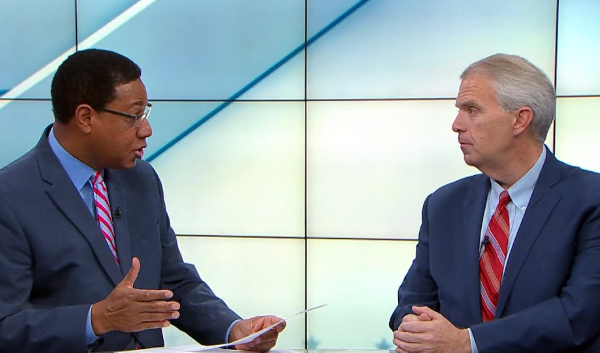It’s no secret that many TV news stations are finding it difficult to both hire and keep journalists in the business. According to a Pew Research Center study, newsroom employment in the United States has declined 26 percent since 2008 — primarily in newspapers and radio. However, anyone hiring for newsroom jobs might argue that the industry has an employment problem.
Mark Little, news director at WMC-TV in Memphis, Tennessee, says you can’t underestimate the money factor. “People going into journalism have been underpaid,” says Little. “I think that’s a problem.”
Little, who served as news director at three other stations prior to being hired at WMC-TV, is convinced that many of today’s journalists are leaving the profession because of the poor pay. In fact, another Pew Research Center analysis found that nearly 79 percent of newsroom employees have a college degree; yet, newsroom employees regularly make significantly less than individuals with college degrees in other professions.
“It should be an ongoing assessment: are we paying fairly?” says Little. “If we’re looking to hire new grads, then you should be paid so you can afford to live. That’s a big deal.”
Little currently works for Gray TV, one of many local TV news and information companies that have been trying to address the issue of low salaries. For example, Gray recently increased its minimum wage to $18 per hour across the board at its stations. And while pay is a factor that news media companies can control to a large extent, there are other challenges. Little says his newsroom is still feeling the impact of COVID-19.
“The topic of a pandemic is really stressful, and a lot of people have been personally impacted by that,” he says. “Some people dig deep and kind of get through and push through it. Some say, ‘You know what, I could use a little lighter profession.’”
Little says another challenge lies in the quality and scope of the applicant pool.
“There’s a balance of filling the position and filling the position with the right person,” says Little. “For an open MMJ (multimedia journalist) position right now, I have 137 applicants based on three openings. I haven’t hired. One hundred thirty-seven people want the job, but they’re not ready.”
How do applicants show they are ready? So, Little recommends being intentional when it comes to crafting a resume reel for the job.
“I’ve gotten sports reels from someone who wants to be a news reporter and the other way around,” he says. “Just because you’re doing the same skill set doesn’t mean that I know you can do the other one. Make sure it fits the job you’re applying for.”
But Little is still looking and encouraging young journalists to go after jobs in TV news.
“Do it. Take the step,” he says. “Oftentimes, the anxiety and anticipation is 100 times worse than reality, so don’t let that get in your way.”








